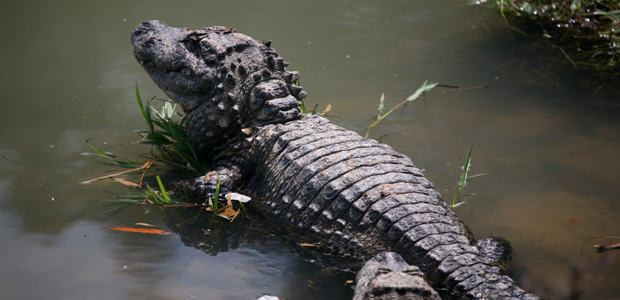Advertisement
Wildlife Wednesday: Chinese Alligator
Even though they’re much smaller than their American counterparts, you still wouldn’t want to get in the way of one! On this Wildlife Wednesday, we learn about Chinese alligators and why a mouth full of teeth isn’t enough to keep them off of endangered species lists. Habitat Traditionally, these smug looking reptiles were found in … Continued

Even though they’re much smaller than their American counterparts, you still wouldn’t want to get in the way of one! On this Wildlife Wednesday, we learn about Chinese alligators and why a mouth full of teeth isn’t enough to keep them off of endangered species lists.
Habitat
Traditionally, these smug looking reptiles were found in and around swamps, rivers, lakes, streams, and other wetlands. These days, they’re mostly found in ditches and irrigation ponds.
Trivia
- Chinese alligators are known as Yow-Lung or T’o in their native China—terms that translate to “dragon.” It’s thought that these creatures may have been behind the myth of the Chinese dragon.
- While definitely not “little,” these alligators are much smaller than their American counterparts—averaging only about 5 feet (1.5 m) in length, instead of 11.2 feet (3.4 m).
- There’s no point in climbing a tree if you ever find yourself with the misfortune of being chased by these thick-skinned predators; like any crocodilian species, Chinese alligators can—and will—climb trees.
- Fortunately, the risk of being chased by one of these alligators is low. Primarily nocturnal, they prefer to spend their days snoozing away in the burrows that they create.
Why are they threatened?
Chinese alligators may look ferocious, but they just don’t seem to look ferocious enough. The truth of the matter is that this little alligator species is one of the most endangered in the crocodilian family; with fewer than 130 of these reptiles left in the wild, they’re listed as “critically endangered” by the IUCN.
Their dwindling numbers are primarily caused by habitat loss, as most of their historical range has been converted into rice paddies.





